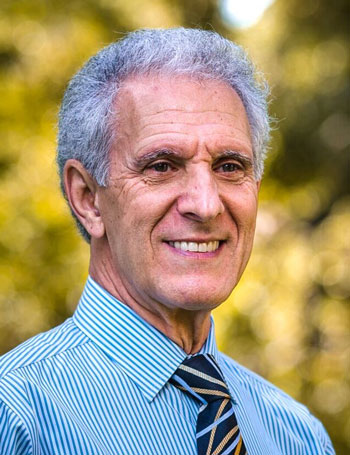
Philemon Zachariou
A native Greek, a retired Greek professor, and the author of Reading and Pronouncing Biblical Greek: Historical Pronunciation versus Erasmian.
He currently develops New Testament Greek instructional material, is an adjunct professor of English at Northwest University, and a BibleMesh Greek Teaching Fellow.
The phrase “born-again Christian” has become almost cliché. Yet seen through a key Greek word in a dialogue between Jesus and Nicodemus, this common phrase can be clothed anew in meaningful truth. The word at issue is ἄνωθεν anothen “from above.” The word is formed from ἄνω “above” + -θεν, a suffix denoting origin of motion from a locality, hence “from above.” In certain contexts, ἄνωθεν can also mean “again.” The question is which meaning it carries in Jesus’ conversation with Nicodemus.
Nicodemus, a Pharisee and secret admirer of Jesus, is resolved to find out for himself once and for all who Jesus truly is, so he visits Jesus privately at night and attempts to size up the Master (John 3:1-2). “Master,” Nicodemus says, “we know that you are a teacher come from God; for no man can do the wonders you do except God be with him” (2). Jesus brushes his visitor’s introductory accolades aside and immediately brings into the discussion a topic unrelated to Nicodemus’ inquiry, yet more relevant to his spiritual need: “Truly, truly, I say to you,” Jesus says, “unless one is born from above [anothen] he cannot see the kingdom of God” (3).
A thought instantly flashes in Nicodemus’ mind, and possibly with an air of sanctimony he boldly queries, “How can a man, being old, be born? Is it possible for him to enter his mother’s womb a second time and be born?” (4).
Let us pause a moment and put this dialogue in perspective. Jesus uses ἄνωθεν early in the dialogue (3), that is, before Nicodemus really has had a chance to “test” Jesus and form a solid opinion of him. But while we could suppose that Nicodemus misunderstood Jesus’ use of ἄνωθεν and heard it as “again,” the likelihood cannot be discounted that his “misunderstanding” was intentional, particularly because the opportunity for a witty wordplay appeared too enticing at a moment in which Jesus appeared to have plunged himself into a difficult situation with the words he had uttered—a welcome opportunity for an audacious Nicodemus to choose to hear the word ἄνωθεν not as “above” but as “a second time,” that is, “again.” We can reasonably conjecture that Jesus’ primary meaning in employing ἄνωθεν was “from above” because in Modern Greek ἄνωθεν has preserved its classical and New Testament meaning of “from above.” (Informally, Modern Greek uses από (ε)πάνω to signify “from above,” both words having retained their classical and New Testament sense.)
Perceiving Nicodemus, Jesus patiently explains to him the need for every human being born from the womb (water) to be born also of the Spirit (5-8). But when Nicodemus makes a thwarted attempt to challenge Jesus a third time—though apparently awe-struck by the character of Jesus—and groping for words, he mutters, “How can these things be?” (9), he receives a jolting exclamation from Jesus, who tells him that as a leading teacher of Israel he should know better than to be puzzled by such truths (10).
While this view of Nicodemus’ demeanor and wittiness at the beginning of his encounter with Jesus may sound somewhat conjectural, the likelihood of its accuracy is high; for Nicodemus, who turned out to be openly a staunch supporter of Jesus (John 7:50-51, 19:39), was a well-educated rabbinic Pharisee. Like Paul (and judging by his Greek name Νικόδημος Nikodemos “people’s victor,” which is suggestive of strong Hellenistic influence) Nicodemus was a Hellenized Pharisee; as such, he was most capable of an instantaneous Greek linguistic twist at an opportune moment. Jesus used this “people’s victor” to reveal insights that hinged on a Greek word with a bifurcated meaning that allowed the dialogue to take the double path it did.
Today, a more meaningful understanding is in store for the Christian who walks in Nicodemus’ footsteps, meets Jesus, and hears the Master say that to be born again is to be born from above.
Interested in learning Hebrew or Greek? Check out BibleMesh Biblical Languages. A five year project with a dedicated team of scholars, offering you a better way to learn Hebrew and Greek.
